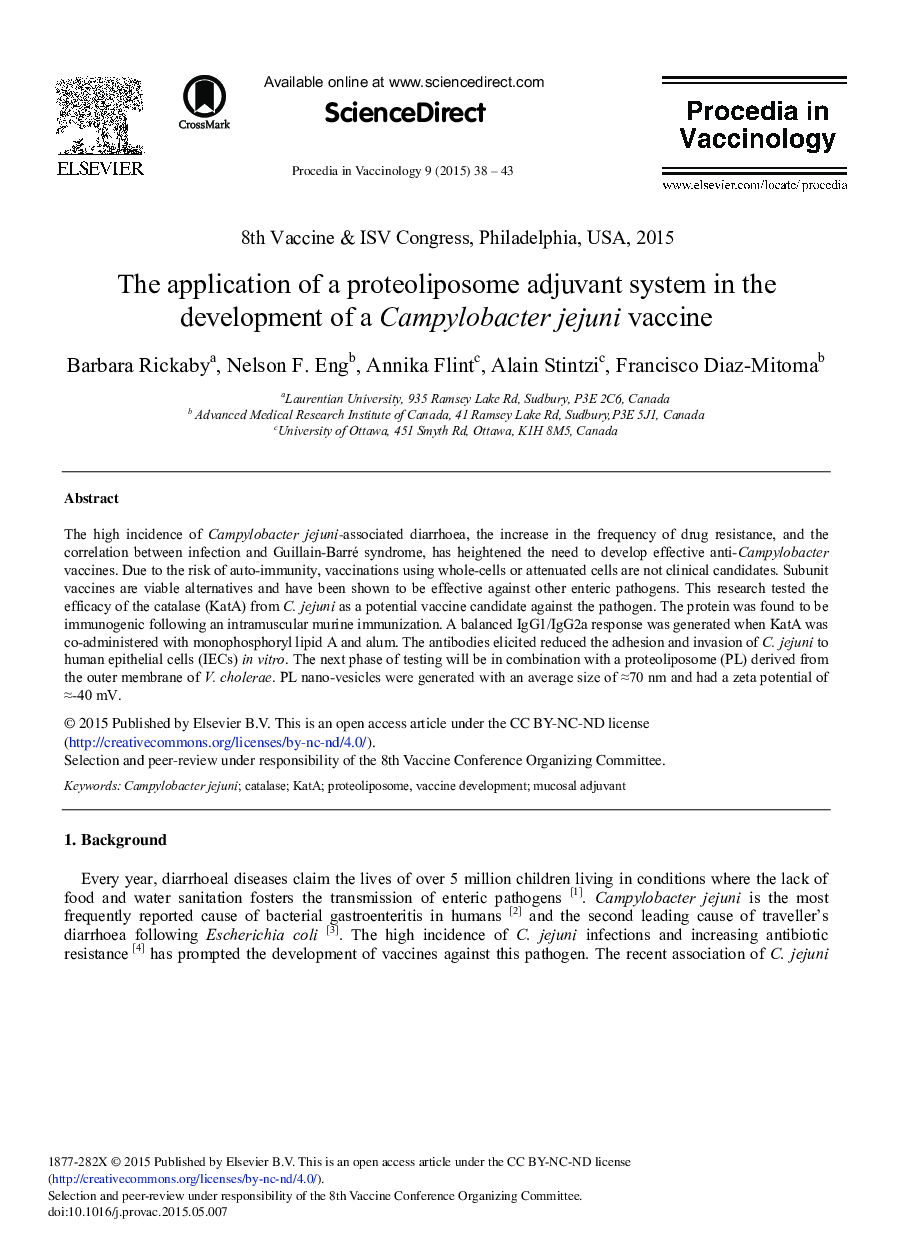| Article ID | Journal | Published Year | Pages | File Type |
|---|---|---|---|---|
| 2473696 | Procedia in Vaccinology | 2015 | 6 Pages |
The high incidence of Campylobacter jejuni-associated diarrhoea, the increase in the frequency of drug resistance, and the correlation between infection and Guillain-Barré syndrome, has heightened the need to develop effective anti-Campylobacter vaccines. Due to the risk of auto-immunity, vaccinations using whole-cells or attenuated cells are not clinical candidates. Subunit vaccines are viable alternatives and have been shown to be effective against other enteric pathogens. This research tested the efficacy of the catalase (KatA) from C. jejuni as a potential vaccine candidate against the pathogen. The protein was found to be immunogenic following an intramuscular murine immunization. A balanced IgG1/IgG2a response was generated when KatA was co-administered with monophosphoryl lipid A and alum. The antibodies elicited reduced the adhesion and invasion of C. jejuni to human epithelial cells (IECs) in vitro. The next phase of testing will be in combination with a proteoliposome (PL) derived from the outer membrane of V. cholerae. PL nano-vesicles were generated with an average size of ≈70 nm and had a zeta potential of ≈-40 mV.
